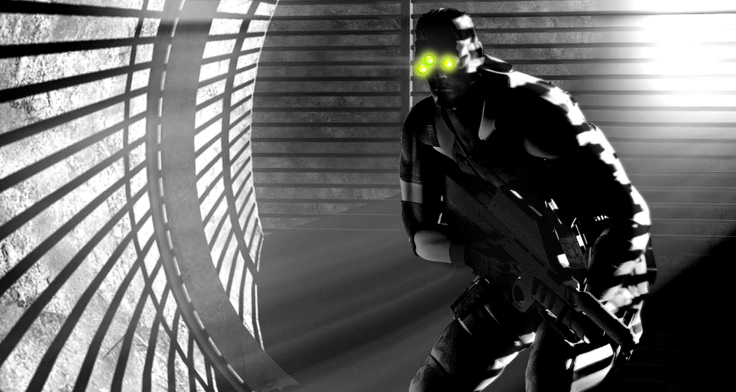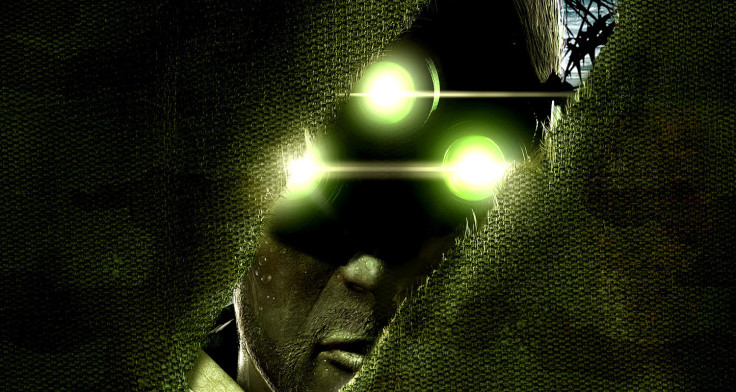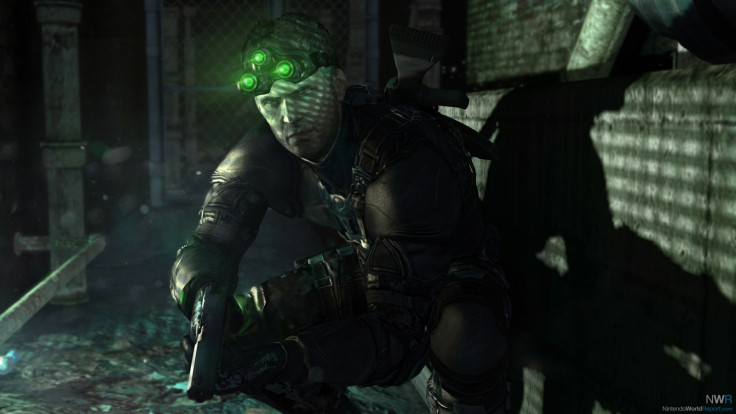Why E3 2017 is the perfect time for Ubisoft to bring back Splinter Cell
It's time the stealth genre went back to the gritty realism that made Splinter Cell king.

Ubisoft's love of Tom Clancy games is only matched by its love of towers and embarrassing swearing during major press conferences, and with the recent success of Ghost Recon: Wildlands, The Division and Rainbow Six Siege, it's safe to say the Clancy brand is going nowhere.
In recent years, Ubisoft has drawn upon most of its successful Tom Clancy series and created a whole new one with The Division, leaving just one major player to dwell in the shadows, surely biding its time to reemerge.
The Splinter Cell series hasn't been seen or heard of since 2013's Blacklist, and now is the perfect time for its return.
Before its initial release in 2002, Splinter Cell was pitched as a Metal Gear Solid competitor. It's easy to see why; both series focus on stealthy play and their protagonists were dour gruff boys clad in spandex tactical suits.
In reality the two games shared little in common. Metal Gear rooted itself in stealthy play but regularly embarked on wild, action-orientated tangents, while Splinter Cell told a more grounded, contemporary tale and served up a more realistic depiction of covert ops in action.
The original Splinter Cell and its sequel Pandora Tomorrow were great stealth games that still hold up today, but it was with third entry Chaos Theory that Ubisoft really struck gold. For our money it's one of the best action games ever made, but it was after that 2005 classic that Ubisoft decided to change the series' direction.
Ubi wanted more action, a more immediate story, and so 2006's Double Agent took series hero Sam Fisher undercover and to the wrong side of the law, introducing a trust mechanic and decisions that would determine multiple endings. This included murdering his boss Irving Lambert in cold blood.

In 2010, Conviction took Fisher's personal drama even further, using the apparently accidental death of his daughter to turn him against authorities as a larger conspiracy comes to light. Inspired by popular thrillers of screens big (Bourne) and small (24), this was a massive departure in tone and gameplay from the original three games.
The game also introduced the Mark and Execute mechanic which rewarded players with the ability to stylishly dispatch multiple enemies in a slow-motion flourish. While it provided satisfying results, it went against what worked so well about the series by faking the kind of moments that were so exciting to pull off in previous games.
Clearing a room of guards in Chaos Theory may not have had the same sense of flair Mark and Execute offers, but it did entail a greater sense of accomplishment, and in the moment between sussing out and enacting a plan, a greater tension as well.
Ubisoft lost touch with what made Splinter Cell work and what made it popular, all in an effort to make it even more popular. In 2013, Blacklist found a more comfortable middle ground between these old and new ideas, but by then the series was clearly running out of steam.
Sam Fisher's actions were animated with a greater sense of action choreography. His close-up kills became viscous, unnecessarily "cool" and the effect it had was portraying Sam as someone who revels in his dirty work. The Fisher we once knew, the efficient professional who knew how to put his skills to use and didn't ask for any commendation, was replaced with an enthusiastic killer.

Four years on from Blacklist, the timing is right for the series' return. Metal Gear Solid 5: The Phantom Pain marked an apparent end to the pioneering stealth series in 2015, and since then the only high-profile games rooted in stealth have been the fantastical and fantastic Dishonored 2 and IO Interactive's Hitman, which are two entirely different propositions.
A new Splinter Cell that refocuses the series and takes it back - if not all the way - to the grounded, methodical stealth of those first three games, would be an instant fan-pleaser, and would also offer something different to the vast majority of action games currently on the market.
That's if Ubisoft resisted the urge to steer the series back into bombastic, Hollywood territory and aimed instead to deliver a mature spy thriller steeped in geopolitical intrigue and tension. When Splinter Cell was at its best, its gameplay reflected a believable, grounded story.
Ubisoft may have gone quiet in regard to Cell games, but the company still appears to be planning a big-screen adaptation of the series. Touted as a vehicle for Mad Max: Fury Road star Tom Hardy, it was only this past January that one of the film's producers was talking up the project.
If the film is still happening, there's no way the French gaming giant is finished with Splinter Cell as a game series, and were it to return, now would be the time.
For all the latest video game news follow us on Twitter @IBTGamesUK.
© Copyright IBTimes 2024. All rights reserved.






